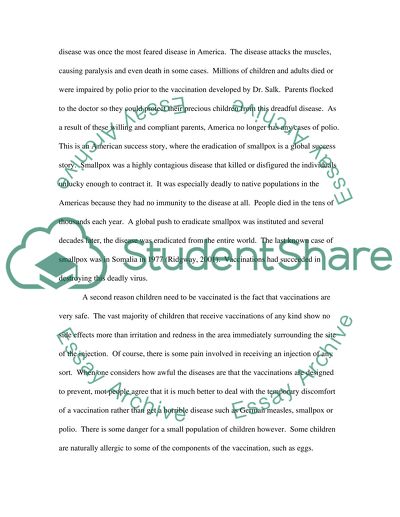Cite this document
(“Vaccination of children Research Paper Example | Topics and Well Written Essays - 1250 words”, n.d.)
Vaccination of children Research Paper Example | Topics and Well Written Essays - 1250 words. Retrieved from https://studentshare.org/health-sciences-medicine/1472612-vaccination-of-children
Vaccination of children Research Paper Example | Topics and Well Written Essays - 1250 words. Retrieved from https://studentshare.org/health-sciences-medicine/1472612-vaccination-of-children
(Vaccination of Children Research Paper Example | Topics and Well Written Essays - 1250 Words)
Vaccination of Children Research Paper Example | Topics and Well Written Essays - 1250 Words. https://studentshare.org/health-sciences-medicine/1472612-vaccination-of-children.
Vaccination of Children Research Paper Example | Topics and Well Written Essays - 1250 Words. https://studentshare.org/health-sciences-medicine/1472612-vaccination-of-children.
“Vaccination of Children Research Paper Example | Topics and Well Written Essays - 1250 Words”, n.d. https://studentshare.org/health-sciences-medicine/1472612-vaccination-of-children.


